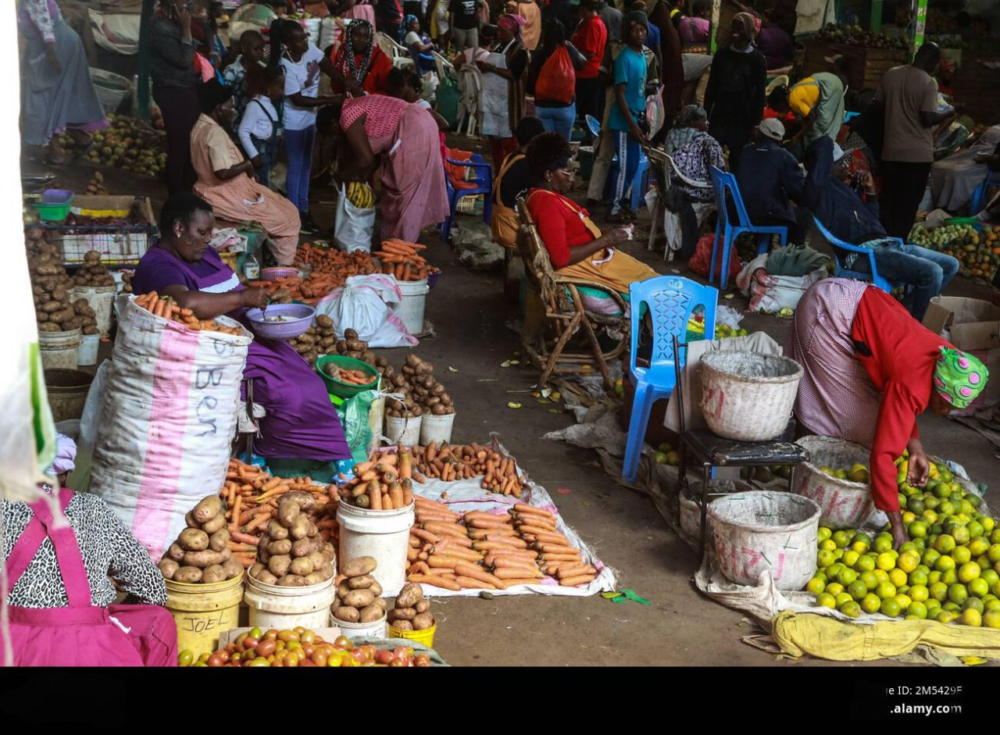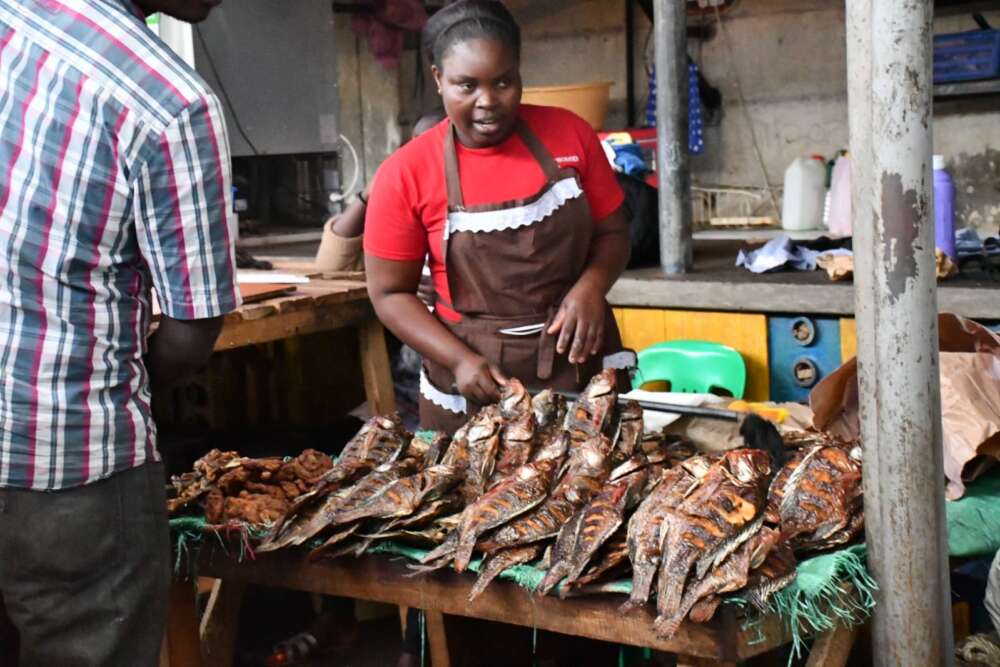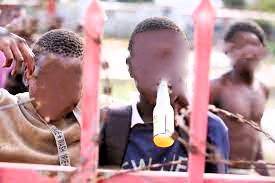By Steve Khaemba, Devreporter, Nakuru County

Key Highlights
- Urbanisation, poverty, and broken families have contributed to the rising number of street children in Nakuru.
- Life on the streets is particularly perilous for girls, who face constant threats of violence, drug abuse, and sexual assault.
- There is an urgent need for scalable efforts from the government and well-wishers to create sustainable solutions for the street children problem.
- Emphasis is placed on the necessity for rehabilitation programmes for those addicted to drugs.
In the heart of Nakuru, a growing city known for its scenic beauty and arguably thriving economy, another reality unfolds—one of hardship, pain, and survival.
Street children and families navigate a precarious existence, often overlooked by the fast-paced life surrounding them. Their honest and unvarnished words reveal the difficult realities they face daily.
In this article, RB News explores the lives of Nakuru’s street kids, sharing narratives that are both heartbreaking and inspiring. The piece highlights the initiatives that aim to improve their circumstances.
While the issue of street children is not new, it has become increasingly prevalent in Nakuru due to factors such as rapid urbanisation, poverty, and broken families.
According to a 2023 report by the Kenya National Bureau of Statistics (KNBS), Nakuru County has experienced a significant rise in the number of children living on the streets, now estimated at 300, reflecting broader national trends.
Judy’s Story
Judy Wanjiru, a 31-year-old street mother, first found herself on the streets in 2002 after her parents died in Solai.
With no guardians to care for her and her siblings, they sought refuge among the streets families of Nakuru.
“We call that dustbin our mother,” Judy says, gesturing toward a rusted bin on the side of the road. For the last 20 years, it has been her primary source of food.
She recalls a shocking incident while scavenging: “One day, I found a baby girl abandoned in a green carrier bag. We cried. She was beautiful. I thought, if only her mother had brought her to us instead of dumping her in the trash.”
Judy’s story highlights the harsh survival tactics many street families must employ. They rummage through refuse for food, endure inclement weather, and face constant discrimination.
Like Judy, many children and young adults have been forced to the streets due to family loss, abuse, or poverty.
Alice Wangare: Homeless for Five Years
Alice Wangare, a young woman who has been homeless for five years, shares her story of how she ended up on the streets.
After her mother’s relationship with her stepfather deteriorated, Alice fled home, hungry and desperate.
“I had nothing to eat,” Alice explains. “So, I started selling drugs to survive. But then the police caught up with me, and life became even harder.”
Now in her twenties, Alice embodies the struggles of many street children whose lives spiraled out of control due to circumstances beyond their control.
Dangers Facing Street Girls
For street girls like Judy and Alice, life is fraught with additional dangers.
In addition to hunger and homelessness, they face constant threats of violence, including sexual assault.
“Male children see you as prey,” Judy says. “They drug and assault you. Some girls fall sick as a result.”
Alice adds that substance abuse fuels much of the violence on the streets.
“I had a boyfriend who smoked marijuana and used other drugs. One day, he beat me because I didn’t take the drugs with him.”
For these young women, street life has become a painful cycle of survival, marked by abuse and the absence of a safe space to call home.
Hope and Healing
Amidst the bleakness of street life, some community members are taking action to provide hope and healing for the street children.
One such group is Blessed Overcomers, a local organisation founded by traders from Nakuru’s Wakulima Market.

Their mission is to support street families through guidance and counselling, as well as the provision of basic needs.
Gladys Wamboi Kamau, one of the founders, says, “We started Blessed Overcomers because people were losing hope.”
She adds, “We’ve faced many of the same problems. But through counselling, we saw that people could overcome their struggles and rebuild their lives.”
Through their initiatives, Blessed Overcomers has created a lifeline for some of Nakuru’s street children, offering food, clothing, and emotional support, with the hope that these children can eventually leave the streets.

Journey to Reform
One of Blessed Overcomers’ most inspiring success stories is that of Muhammad Gachoka, a former street boy who now champions the interests of street children. His transformation is a testament to the power of community intervention.
Muhammad recalls his own experience as a street child: “Reforming was a war with my soul, but I made it. Many of my friends from the streets didn’t.”
Today, Muhammad works alongside Blessed Overcomers to help more street children reform and find acceptance in society.
Long-Term Interventions
While community groups like Blessed Overcomers have made significant strides, they cannot address the problem of street children alone.
Alice believes that rehabilitation is essential for street children, particularly those struggling with drug addiction, who face systemic challenges such as abuse, poverty, and limited access to vital social services.
“Some need to be sent to rehab to reform. It’s not easy, but it’s possible,” says Alice Wangare.
Judy emphasises the need for long-term solutions: “Providing food is helpful, but what about tomorrow? Teach us to fish rather than just giving us fish.”
Nakuru County’s Deputy Governor, David Kones, recognises the necessity for sustainable, long-term interventions.
In a recent statement, he outlined plans to establish a centre for street children in Nakuru, where they can receive education and job training.
“We aim to change their way of life. We want to provide quality education and skills so they don’t fall back into drugs,” explained the Deputy Governor.

Equality and Inclusion
The situation of street children in Nakuru underscores broader social inequalities in Kenya.
While Kenya’s Constitution guarantees basic rights to food, shelter, and education through Article 43, many street children remain excluded from this safety net.
Discrimination, neglect, and systemic failures have left these children in a state of perpetual struggle.
However, organisations like Blessed Overcomers showcase that change is achievable.
The real challenge now is to scale these efforts and ensure that the Kenyan government, along with other supporters, contributes to long-term solutions that empower street children.
As Judy, Alice, Muhammad, and countless others fight for their dignity and survival on the streets, one message resonates: the time for action is now.
Kenya must embrace its street children not as outcasts, but as equal citizens deserving of opportunity, protection, and a future beyond the streets.






